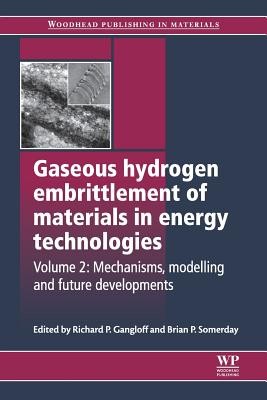| Gaseous Hydrogen Embrittlement of Materials in Energy Technologies: Mechanisms, Modelling and Future Developments Contributor(s): Gangloff, Richard P. (Editor), Somerday, Brian P. (Editor) |
|
 |
ISBN: 0081016417 ISBN-13: 9780081016411 Publisher: Woodhead Publishing OUR PRICE: $267.30 Product Type: Paperback - Other Formats Published: August 2016 |
| Additional Information |
| BISAC Categories: - Technology & Engineering | Civil - Transportation - Business & Economics | Industries - Energy - Technology & Engineering | Power Resources - Alternative & Renewable |
| Series: Woodhead Publishing Metals and Surface Engineering |
| Physical Information: 1.05" H x 6.14" W x 9.21" (1.59 lbs) 520 pages |
| Descriptions, Reviews, Etc. |
| Publisher Description: Many modern energy systems are reliant on the production, transportation, storage, and use of gaseous hydrogen. The safety, durability, performance and economic operation of these systems is challenged by operating-cycle dependent degradation by hydrogen of otherwise high performance materials. This important two-volume work provides a comprehensive and authoritative overview of the latest research into managing hydrogen embrittlement in energy technologies. Volume 2 is divided into three parts, part one looks at the mechanisms of hydrogen interactions with metals including chapters on the adsorption and trap-sensitive diffusion of hydrogen and its impact on deformation and fracture processes. Part two investigates modern methods of modelling hydrogen damage so as to predict material-cracking properties. The book ends with suggested future directions in science and engineering to manage the hydrogen embrittlement of high-performance metals in energy systems. With its distinguished editors and international team of expert contributors, Volume 2 of Gaseous hydrogen embrittlement of materials in energy technologies is an invaluable reference tool for engineers, designers, materials scientists, and solid mechanicians working with safety-critical components fabricated from high performance materials required to operate in severe environments based on hydrogen. Impacted technologies include aerospace, petrochemical refining, gas transmission, power generation and transportation. |